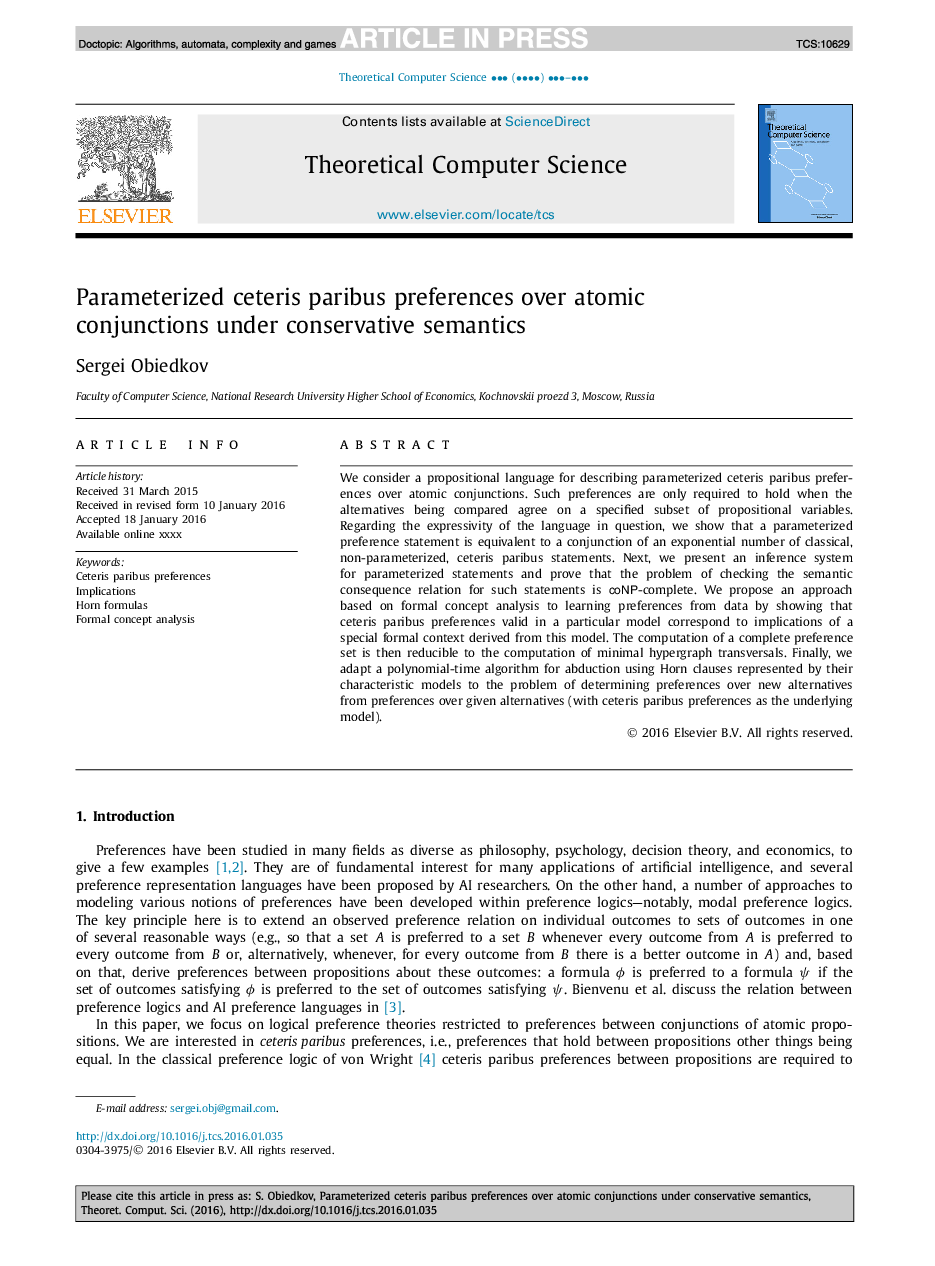| Article ID | Journal | Published Year | Pages | File Type |
|---|---|---|---|---|
| 4952381 | Theoretical Computer Science | 2017 | 16 Pages |
Abstract
We consider a propositional language for describing parameterized ceteris paribus preferences over atomic conjunctions. Such preferences are only required to hold when the alternatives being compared agree on a specified subset of propositional variables. Regarding the expressivity of the language in question, we show that a parameterized preference statement is equivalent to a conjunction of an exponential number of classical, non-parameterized, ceteris paribus statements. Next, we present an inference system for parameterized statements and prove that the problem of checking the semantic consequence relation for such statements is coNP-complete. We propose an approach based on formal concept analysis to learning preferences from data by showing that ceteris paribus preferences valid in a particular model correspond to implications of a special formal context derived from this model. The computation of a complete preference set is then reducible to the computation of minimal hypergraph transversals. Finally, we adapt a polynomial-time algorithm for abduction using Horn clauses represented by their characteristic models to the problem of determining preferences over new alternatives from preferences over given alternatives (with ceteris paribus preferences as the underlying model).
Related Topics
Physical Sciences and Engineering
Computer Science
Computational Theory and Mathematics
Authors
Sergei Obiedkov,
